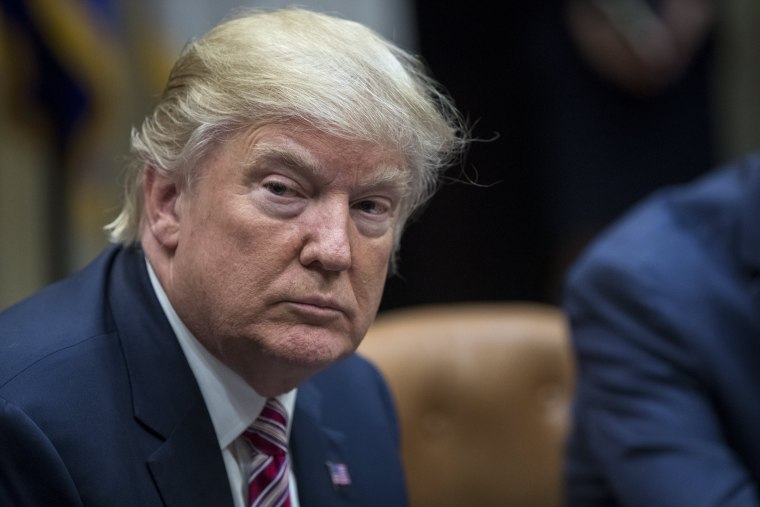Donald Trump made an audacious threat a couple of weeks ago, declaring his intention to impose harsh trade sanctions on Mexico unless our southern neighbors "substantially stopped the illegal inflow of aliens coming through its territory." Those new taxes were scheduled to take effect today.
At least for now, that policy is on indefinite hold: the American president announced late Friday that his administration and Mexico "reached a signed agreement." At first blush, this may look like a clear victory for Trump's controversial strategy.
After all, the president took a gamble by threatening an ally and risking the health of his own country's economy, but as a result of Trump's tactics, the White House says Mexico is taking new steps to stem immigration, including deploying national guard troops.
Doesn't this count as a presidential tantrum getting results? Do Republican loyalists touting this as a success story have a point? Alas, no. The New York Times reported on a nagging detail: Mexico had already promised to take these actions before Trump issued his threat.
Friday's joint declaration says Mexico agreed to the "deployment of its National Guard throughout Mexico, giving priority to its southern border." But the Mexican government had already pledged to do that in March during secret talks in Miami between Kirstjen Nielsen, then the secretary of homeland security, and Olga Sanchez, the Mexican secretary of the interior, the officials said.The centerpiece of Mr. Trump's deal was an expansion of a program to allow asylum-seekers to remain in Mexico while their legal cases proceed. But that arrangement was reached in December in a pair of painstakingly negotiated diplomatic notes that the two countries exchanged. Ms. Nielsen announced the Migrant Protection Protocols during a hearing of the House Judiciary Committee five days before Christmas.
A Politico report added, "A person familiar with the negotiations under former Homeland Security Secretary Kirstjen Nielsen confirmed New York Times reporting that much of what Mexico agreed to do this week was already on track months ago."
Oh. So, Trump wants us to believe he extracted historic concessions through his hardball negotiating tactics, which, as it turns out, isn't at all what happened.
In fact, by some measures, the White House's new line is largely backwards: all the American president has to show for his efforts are a few measures that aren't expected to make much of a difference, and which Mexico had already agreed to implement.
All of which suggests Trump was apparently bluffing -- again -- just as some of his Democratic critics predicted.
In an apparent bid to put a positive spin on his apparent failure, the Republican took two additional steps. First, on Saturday, Trump claimed via Twitter that Mexico has "agreed to immediately begin buying large quantities of agricultural product" from American farmers. It sounded like a positive development, right up until observers noticed how nonsensical this was.
For one thing, Mexican consumers are already buying American agricultural products in large quantities. Second, the Mexican government doesn't even have a mechanism in place to make such a purchase.
But even putting those details aside, the more obvious problem was that Trump pointed to a provision in the agreement that does not exist. In fact, when asked about the American president's boast, Mexican officials made clear they had no idea what he was referring to.
When that talking point collapsed, Trump returned to Twitter with a new argument: Mexico agreed to some secret concessions, which were omitted from the formal agreement, and which the Republican intends to talk about "at the appropriate time."
There's nothing to suggest these secret provisions exist, and White House officials were reluctant to explain what he meant.
It's tempting to think the larger dynamic has effectively reset to where things stood before the tariff ultimatum was first issued, but that's not quite right. As of this morning, Trump has done additional harm to his credibility and weakened his administration's negotiating posture in the eyes of the world at a delicate time.
Or put another way, the president may be in a worse position now than he was when he launched this gambit in the first place.
